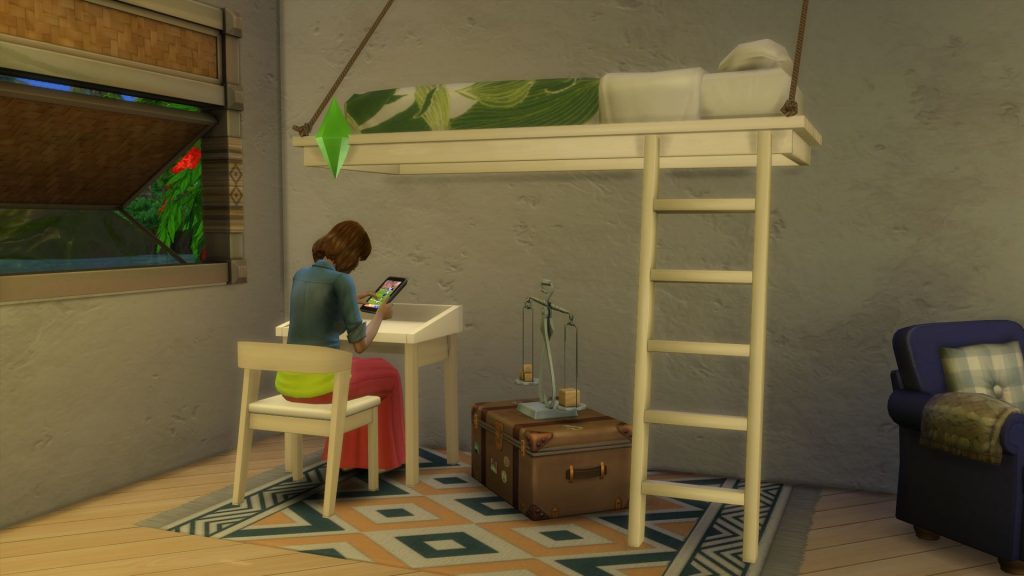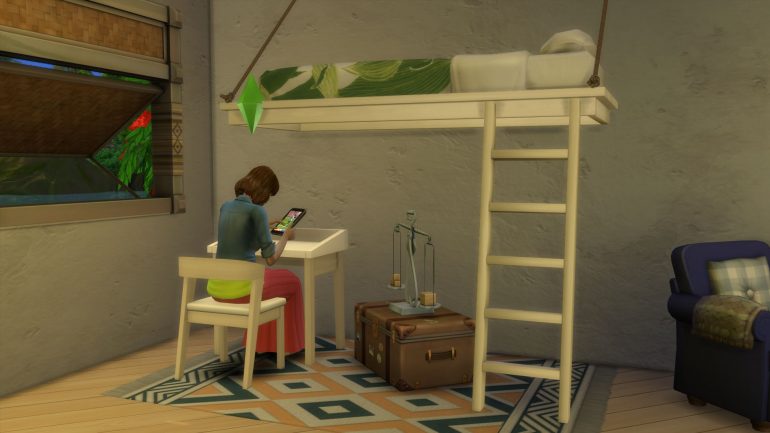Michelle Ross

If Lorrie raises her voice at Gabe when a window is open, as she does this evening while massaging kale with oil and salt in her bare hands to reduce the bitterness, Gabe slides the window shut. “I don’t want neighbors hearing our business.”
In the video game she recently started playing with their ten-year-old son, Carson—because The New York Times recommended it as something adults and kids could enjoy together in these weird, blurry weeks—their avatars can walk right into many of the townspeople’s homes without knocking, without being invited. In the beginning, that’s all Carson wanted to do. “Let’s go inside!” He’d laugh maniacally when Lorrie objected to his breach in social mores, and she’d wonder what this isolation from school, his friends, the world as he knew it, was doing to his brain. In the stretchy afternoons, she found him staring out his bedroom window in a daze.
Even in the game, there are limits to how far you can violate your neighbors’ privacy. The townspeople’s bedroom doors are all locked. Try to open them, as Carson did, and a message appears on the screen: “You’re not good enough friends with _________ to enter his/her bedroom.”
Or at least that was the case until Lorrie and Carson, or more aptly, Shortbread and Pocky, buttered the townspeople up with gifts of poppies, peaches, and truffle oil they grew and made on their farm. Now they can snoop in many of the townspeople’s bedrooms. They can tuck themselves into the townspeople’s beds. Read notes left on nightstands. Most of the notes are love notes. In one, a war veteran, Ken, writes to his wife that post-traumatic stress disorder has changed him; if he acts weird with her and the kids, she should know he still loves her very much. Ken, too, spends a lot of time in a daze, only he stands outside, watches the perpetual motion of the stream outside his house.
There’s no place to watch water in Lorrie’s desert town, but at least it’s not too hot yet to open the windows in the mornings. She loves the fresh air, the calls of the birds, the songs of the windchimes dangling above their porch—all things Gabe complains about. The breeze makes him cold. The birds and the windchimes are annoying. Gabe opens the windows only if something Lorrie is cooking is smoking up the kitchen, and he’s trying to prevent the smoke alarm from sounding.
In the game, Lorrie discovers she can purchase windows and place them into her walls like paintings. The windows let in light, but she can’t see out of them. They function more like lightbulbs than windows, only you can’t turn them on at will. You can’t slide them open, either. From the outside, the townspeople’s windows reveal nothing.
In the beginning, Lorrie didn’t understand Carson’s interest in the townspeople. All she wanted to do was farm, forage, and fish. But as these days of confinement stack up, and the virtual townspeople’s homes are the only homes she can enter, Lorrie finds herself drawn into their pseudo-intimacy, too. More and more, she goes to Emily’s to take her up on borrowing her sewing machine. She goes to Robin’s to chat about carpentry. She fishes alongside Willie at the pier. Lorrie wants to be invited to the townspeople’s homes for dinner. She wants to hear what they whisper to each other around the bar in the town’s saloon. She wants to feel part of the community, no longer the newcomer, the outsider.
Lorrie finds herself drawn even to Shane, the town asshole. Shane, who has a five-o’clock shadow, who dresses like a teenage boy, and who spends his evenings standing alone at the edge of the saloon’s bar, drinking beer, and pushing away anyone who dares speak to him. Until recently. Since Shortbread bought him a beer and offered him some pepper poppers, Shane’s been kind of nice, and Lorrie feels the sick thrill of achievement—of having broken through that gruff exterior.
In the real world, Gabe busies himself with keeping people out of their home. Besides sliding windows shut, he removes phone apps he says invade his privacy. When they can’t find eggs at the grocery stores for two weeks, he jokes about setting up a sniper stand to protect Lorrie’s vegetable garden. He muses about how there may soon be roaming hordes, and they’ll have to close the shutters during meals.
In the game, Carson’s avatar has been courting Leah, the sculptor, whom Lorrie assumes her son chose because she wears a midriff top. He says Pocky’s going to marry Leah, so he can have babies, as well as help with the farm work. Carson pesters Lorrie about who Shortbread will marry. At first, she is a resolute “no one,” but lately, she finds herself considering Shane. Shane tells Shortbread about his depression and how he drinks too much, both afflictions Lorrie can relate to in general, but especially these days. She’s touched by how he’s been opening up to her, how he trusts her. Maybe he’d make a good husband?
When Lorrie tries to talk to Gabe about the video game, about the strange allure of getting to know the townspeople, Gabe says, “You know how I feel about video games.”
This is the comment that Lorrie raises her voice at while she’s massaging the kale. “Yes, I fucking know, but so what? Why can’t you indulge me? Why can’t you just listen?”
And what is Gabe doing while she’s massaging the kale? He’s standing at the bar behind their kitchen sink drinking beer from her favorite beer mug, which had once been a set of two before Gabe dropped its companion on the tile floor yesterday, and the glass shattered into hundreds of tiny shards. How giddy the pieces had looked to Lorrie scattered across the floor, as though the break had liberated them at last.
Michelle Ross is the author of the story collections There’s So Much They Haven’t Told You (Moon City Press, 2017) and Shapeshifting(forthcoming from Stillhouse Press, 2021). Her fiction has appeared in Alaska Quarterly Review, Colorado Review, Electric Literature, The Southeast Review, and elsewhere. Her work has been selected for Best Microfictions 2020 and the Wigleaf Top 50 2019, among other honors. She is fiction editor of Atticus Review.



